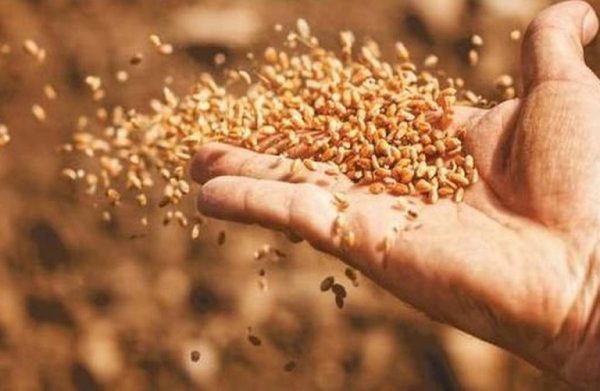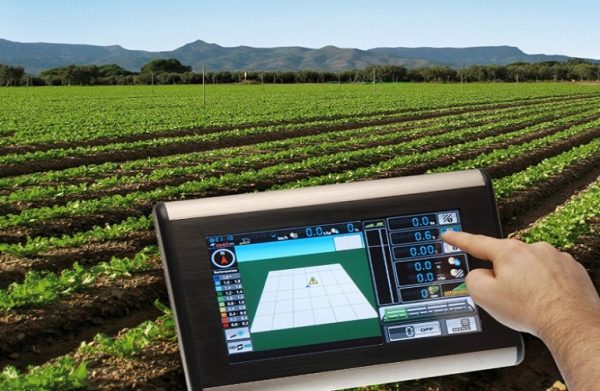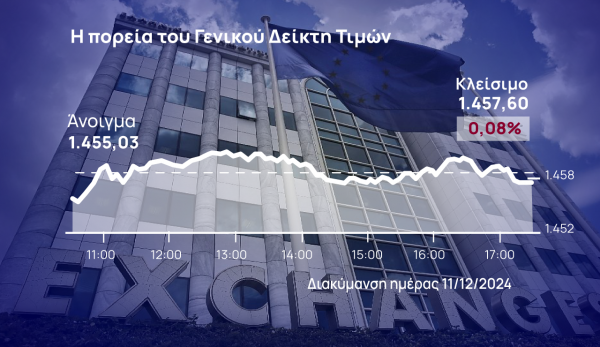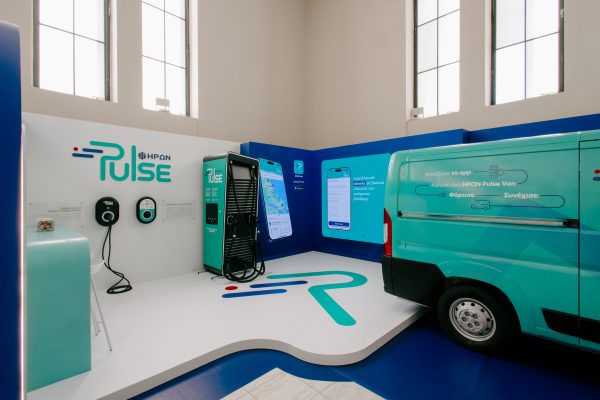
By 2050, the agri-food sector worldwide should feed 40% more people, while arable land per capita will have decreased, while the contribution of the Greek agricultural sector in terms of Gross Value Added stands at 4.7%. At the same time, the high production costs and the small and fragmented agricultural holdings, the areas that need attention.
These are some of the conclusions reached by the extensive study prepared jointly by EY Hellas and Piraeus Bank, entitled “How can the agri-food sector meet the challenges of tomorrow, today?”.
At the same time, the study highlights the importance of the agri-food sector, for the Greek economy and society, the challenges it is called upon to manage, but also the opportunities that emerge in view of a very different tomorrow.
The main findings of the study were presented, for the first time, on Saturday, April 9, 2022, in the context of the 7th Delphi Economic Forum, by Mr. Thanos Mavros, Partner in the Consulting Services Department of EY Greece and Head of Consumer Products and Retail in Southeastern Europe, and Mr. Alkis Alexandrou, General Manager of Agricultural Banking of Piraeus Bank.
The agri-food sector is crucial for the global and local economy. In Greece, the food, beverage and tobacco industry, maintains the first place in number of companies among the various sectors of processing (16,263 companies in total 57,014) and is the largest employer of domestic processing, at a rate of 39%. At the same time, in 2020, the agricultural sector contributed 4.7% of the total Gross Value Added (GVA), while it employs over 400 thousand people, or more than 10% of the total employed human resources in the country. At the same time, the Agri-food sector, as a whole, contributes significantly to Greek exports, presenting, for the first time in several years, in 2020, a trade balance with a surplus of € 207 million.

Significant challenges at global and national level
Globally, the agri-food sector is facing enormous challenges, linked to demographic change, climate crisis and changing eating habits. By 2050, the sector should feed 40% more people and have increased food production by 70%, while, at the same time, arable land will have increased by just 10%. By then, 68% of the world’s population will live in urban areas, while an estimated 12% will be malnourished, with arable land per capita estimated to have fallen from 0.23 hectares acres today to 0.15.
At the same time, the climate crisis is leading to the urgent need to take immediate action to address serious agri-food issues, such as food waste, reckless use of water resources, greenhouse gas emissions, soil degradation and biodiversity reduction. Today, the quality of 75% of the planet’s terrestrial soils is degraded – a rate which is expected to increase to 95% by 2050.
The war between two of the world’s largest grain producers – Russia and Ukraine – has exacerbated the issue of food adequacy and wider agri-food challenges.
Eating habits are also changing rapidly, as consumers are now more aware of health, wellness and nutrition, as well as environmental and social issues, as highlighted by EY’s Future Consumer Index Greece 2021. Their access to websites, mobile apps, as well as their participation in social media, provide consumers with the possibility of faster and more complete information, influencing their attitude and their commitment to the products they choose.
In Greece, the agricultural sector is characterized by low productivity compared to the European average, which is attributed to a number of inherent ills, including:
- The level of agricultural education of farmers in the country, which is one of the lowest recorded in the EU, a phenomenon that is also associated with the old age of farmers
- The small size of the farms and the low level of cooperation
- The low level of adoption of technological innovation
Digital innovation, genetic and productive innovation, create significant opportunities
Productivity improvements, observed over the last fifty years, are expected to accelerate thanks to developments, mainly in digital technology and genetics. The farm of the future will utilize digital innovation, through a wide range of connected devices, advanced data collection technologies (eg drones, robotic field scanners, etc.) and machine learning algorithms.
At the same time, productive innovations will continue to create new opportunities, which will help reduce costs, utilize new resources and reduce the environmental footprint of the Agri-food sector. The study presents, among others, developments such as vertical farming, plant-based meat development, plant-based meat and “green” packaging.
The Greek Agri-food sector through the “eyes” of its professionals
EY and Piraeus Bank also recorded, through online and in-person interviews, the views and concerns of more than 400 professionals associated with the entire chain of the Greek Agri-food sector. These are farmers, representatives of agricultural cooperatives, professionals in the processing and packaging sectors, as well as trade.
Among other things, the field research showed that:
- The great importance of the Agri-food sector is mainly attributed to its contribution to food security and food consumption worldwide (76%) and to its contribution to economic development (55%).
- Strengths of the primary sector in Greece are the quality of Greek agricultural products (74%) and the ideal production conditions (54%), while the high production costs (70%) and the small and fragmented agricultural holdings (42%) need attention.
- The most important consumer trends, which directly affect the operation of the Agri-food sector, are the increased importance that consumers now attach to transparency in the source and origin of products and the priority they attach to healthy products.
- Among the changes that could improve the operation and enhance the efficiency of the Agri-food sector, the most important are considered the financing on more favorable terms with the utilization of financial tools and the improvement of the services offered by the State.
- The most important implications of the new Common Agricultural Policy (CAP) for the sector in the coming years are the support for the implementation of investments for the modernization of production units (41%) and the facilitation of the entry of young farmers into the profession (28%).
- Changing consumer habits (46%) and the effects of climate change and new environmental conditions (36%) are considered to be the most important global trends that will affect agri-food as a whole in the future.
- E-commerce (57%) and the development of Contract Farming and Livestock (37%) stand out as the dominant business models that will emerge in the Greek market in the future, and will affect Agro-nutrition.
Conclusions and proposals for the Agri-food sector
The research concludes with a series of proposals for the shielding, strengthening and transformation of the Agri-food sector in Greece. Specifically:
- Holistic approach to the agri-food chain, through the development of durable and sustainable value chains
Formulation of a modern and integrated development plan - Organizational, operational and digital transformation of all companies belonging to the value chain of the Agri-food sector, with the focus on people
- Facilitate the development of synergies, collaborations, trade and distribution platforms, as well as a spirit of cooperation, among all members of the Agri-Food sector
- Emphasis on training and enhancing human resource skills and effectively attracting new producers
- Development of extroversion with coordinated and professional export marketing
- Effective and modern branding
- Implementation of important infrastructure projects, which will facilitate all parts of the Agri-food sector
- Environmental protection, by adopting modern production methods and technology throughout the value chain
- Utilization of all available financial tools, with emphasis on the CAP and the Recovery and Sustainability Fund
- Reduction of food waste
On behalf of EY Greece, Mr. Thanos Mavros, in the context of the presentation of the study, stated: we all give to deal with the environmental and climate crisis. At a time when consumer needs are changing rapidly, the next wave of rural entrepreneurship will require investments and transformation of companies in the sector and related industries, with an emphasis on sustainability, innovation and new business models. In this national effort, EV will support with its know-how the Greek agri-food companies, in all phases of the value chain – from agricultural production, processing and packaging, to logistics, distribution and retail – with the ultimate productive transformation and the creation of added, long-term value for the economy and society as a whole “.
On behalf of Piraeus Bank, Mr. Alkis Alexandrou, stressed: “Looking to the future – and in the midst of a war and a pandemic – we understand that to the increased pressure for food production, due to the expansion of the world population, a series of changes, such as the effects of climate change and the introduction of digital methods on agricultural production, changes in distribution networks and transport, the internationalization of markets, the further urbanization of the population, changes in consumer patterns, which organizes agri-food value chains. As the agricultural sector is a key pillar of our national economy, as it contributes 4.7% of the total Gross Value Added of Greece, Piraeus Bank supports an innovative and integrated development of the Greek agri-food sector, by improving the sustainability and competitiveness of healthy farms and the creation of “excellent” agricultural enterprises. “Green investments with a reduced environmental footprint, as well as trends of growth of export-oriented units demonstrate key characteristics of the agri-food sector companies of our country that are targeted by Piraeus Bank”.
Latest News

EasyJet Expands Its Routes from Athens
The airline’s two new routes will be to London Luton and Alicante and they will commence in summer 2025.

Capital Link Forum Highlights Greece’s Economic Resurgence; Honors BoG Gov Stournaras
Capital Link Hellenic Leadership Award recipient, Bank of Greece Gov. Yannis Stournaras, an ex-FinMin, was lauded for his pivotal role during Greece’s economic recovery

Tourist Spending in Greece Up by 14%, Visa Card Analysis Shows
Greece’s capital Athens emerged as the most popular destination, recording a 17% increase in transactions with Visa cards, surpassing even the cosmopolitan island of Mykonos.

Inflation in Greece Unchanged at 2.4% in Nov. 2024
The general consumer price index (CPI) posted a 0.4% decrease in November compared to the previous month

2024 Christmas Holidays: Extended Shop Hours Schedule
The 2024 Christmas Holidays extended shop hours schedule commences on Thursday, December 12 and runs until the end of the year.

ELSTAT: Seasonally Adjusted Unemployment Down in October
The number of employed individuals reached 4,284,694, an increase of 67,723 compared to October 2023 (+1.6%) and 22,002 compared to September 2024 (+0.5%).

Greek PM’s Chief Economic Adviser Resigns
In the post on his Facebook page, Patelis did not disclose the reasons that led him to step down.

“Masdar Invests in the people of Greece and in the vision of TERNA ENERGY”
Four messages from the CEO of Masdar, the Arab renewable energy giant, after its acquisition of 70% of TERNA ENERGY

Lloyd’s List Greek Shipping Awards 2024: Honors for leading companies and personalities in the Greek shipping sector
20 awards presented at the 21st annual Lloyd's List Greek Shipping Awards

Syria’s Bashar al-Assad, His family Granted Asylum by Russia
Reuters also reported that a deal has been struck to ensure the safety of Russian military bases in the war-ravaged country


















![Χειμερινή εξοχική κατοικία: Οι Ελληνες γυρνούν την πλάτη παρά την πτώση των τιμών [γραφήματα]](https://www.ot.gr/wp-content/uploads/2024/12/Capture-19-90x90.jpg)























 Αριθμός Πιστοποίησης Μ.Η.Τ.232433
Αριθμός Πιστοποίησης Μ.Η.Τ.232433